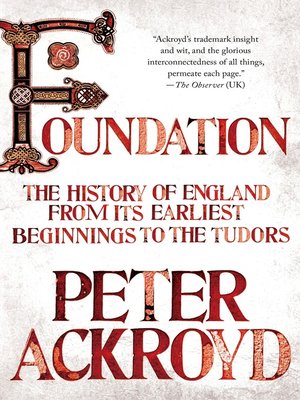

Street patterns, language, words and rhymes remain unchanged through the centuries. One of the things Ackroyd does well is to demonstrate the continuity of London life.

These are just a few, and within each section he covers topics as far-ranging as language, street planning, commerce, sex, the weather and hanging. The book's section headings give some idea of the scope of Ackroyd's guided tour: "From prehistory to 1066", "London a theatre", "Crime and Punishment", "London's rivers", "Women and Children", "Blitz", "Cockney visionaries". And that scavengers not only hunted the sewers, but some also collected dog excrement (known as 'pure') from the pavements for use in the tanning industry. Or that the ashes from one "hill" of refuse were purchased by the Russians to help rebuild Moscow after its burning by the French.

And that in the 1930s Phyllis Pearsall walked eighteen miles each day to put together London's first _A to Z_ map book which, at first, no publisher would accept. He delights in relating curious and incidental facts: that the sort of mechanical crane known as a "derrick", for example, was named after the London hangman who invented "an ingenious structure" for hanging twenty-three condemned at one time. It is a grand claim, but Ackroyd does his best to support it. They may become lost upon the way, they may experience moments of uncertainly.and bewilderment", and "moments of revelation", but "the city will be seen to harbour the secrets of the human world". It is a biography of a living, changing body, "half of stone and half of flesh", which has existed from pre-history, survived plague, fire, famine and wars, and has been called, variously, "this fair city", a "Little World", "Babylon" and "the Great Wen".Īckroyd's book is as various as London itself, and the reader, as he says, "must wander and wonder. Personal enough to explore little known byways where the eccentric and the mad wander, as well as the more familiar haunts and habits of the City, its surroundings and its suburbs.Īnd it is not a history: not by any means a dry chronology of facts. "I am a Londoner who wishes to lead others in the directions which I have pursued over a lifetime". "I am not a Vergil prepared to guide aspiring Dantes around a defined and circular kingdom", he writes in his preface. Only a besotted Londoner could have written this book: but perhaps only Peter Ackroyd could have done it so well.


 0 kommentar(er)
0 kommentar(er)
